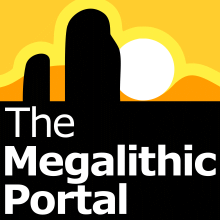<< News >> Greeks put stop to 'Elgin Marbles' museum
Submitted by vicky on Sunday, 14 March 2004 Page Views: 2258
MuseumsThe new Greek government has stopped work on a £700 million museum being built to house the 2,500-year-old Elgin Marbles and legal action has begun against those who authorised the project. A month after its surprise election victory, the centre-Right New Democracy Party has reversed the project in Athens that it tried to block while in opposition.Petros Tatoulis, an MP who has recently been appointed to the new government, argued that the museum would cause irreparable damage to the remains of ancient buildings on the site, including mosaics.
The former socialist government, however, was committed to building the Acropolis Museum, which it hoped would accommodate the Elgin Marbles if - and it is a big if - Britain agreed to return them.
The marbles - 2,500-year-old sculptures which were removed from the Parthenon in Athens by Lord Elgin at the end of the 18th century - are on display at the British Museum. The Greek socialists, who were in power for more than a decade, were determined to go ahead with the project although the country's Supreme Court ruled that the building was illegal last year. The government passed a law making the museum "legal" again.
Work started on it more than four years ago after approval was given to a building 115ft tall on a 10-acre site. As work halted last week, the Supreme Court began proceedings to prosecute the committee members who awarded the design contract to the architects, Bernard Tschumi and Michael Photiades, for breach of duty.
The Supreme Court's prosecutor said he would also bring criminal charges against the Central Archaeological Council, which approved the plans and gave permission for the building work to start.
The museum - like the Elgin Marbles - has been a focus of controversy. Mr Tschumi designed a modern, glass building which he hoped would also be a leisure complex with restaurants and cafes. He insisted that once completed, the British Governement would not be able to resist pressure to return the marbles.
After the New Democracy Party came to power last month, however, Mr Tatoulis, an arch-opponent of the museum, was appointed deputy minister of culture. He said that he was determined to hold to account those who took the decision to build it.
Mr Tatoulis is only one of many people who objected to the new museum. In 1999, Ismini Trianti, the Acropolis's head archaeologist, warned that its construction presupposed the destruction of the archaeological finds beneath it.
An international coalition of archaeologists, art historians, artists and architects also resisted. Spiros Kalogeropoulos, a sculptor, said it would have been a catastrophe. "The building work which has already been undertaken in digging the foundations has destoyed mosaics, walls, floors, casts, and possibly an ancient sculpture factory," he said.
Mr Kalogeropoulos claimed that ancient remains kept appearing under the bulldozers, even when the workmen were digging at a depth of 20 metres.
At least seven layers of archaeological remains lie buried where the museum's foundations have been laid, dating from the original prehistoric settlements through to the classical, Hellenistic and Byzantine periods.
"The museum was supposed to preserve artefacts and objects from Greece's ancient heritage," said Mr Kalogeropoulos. "It has ended up destroying them indiscriminately."
As the debate about the rightful location of the Elgin Marbles continues, there is near universal agreement in Greece that they should be returned. "They must be returned to Athens," said Mr Kalogeropoulos. "We simply need to find a place for them that does not involve destroying our heritage."
Mr Tschumi, the project architect who lives in New York, has ignored concerns that his construction would destroy ancient buildings and artefacts.
"It's history," he said. "The Parthenon itself was built on the site of a smaller temple. Cities are built up in layers. They have to be. Otherwise, we'd be living in an Indian village instead of New York."
Source: The Telegraph Online 14/03/2004



 We would like to know more about this location. Please feel free to add a brief description and any relevant information in your own language.
We would like to know more about this location. Please feel free to add a brief description and any relevant information in your own language. Wir möchten mehr über diese Stätte erfahren. Bitte zögern Sie nicht, eine kurze Beschreibung und relevante Informationen in Deutsch hinzuzufügen.
Wir möchten mehr über diese Stätte erfahren. Bitte zögern Sie nicht, eine kurze Beschreibung und relevante Informationen in Deutsch hinzuzufügen. Nous aimerions en savoir encore un peu sur les lieux. S'il vous plaît n'hesitez pas à ajouter une courte description et tous les renseignements pertinents dans votre propre langue.
Nous aimerions en savoir encore un peu sur les lieux. S'il vous plaît n'hesitez pas à ajouter une courte description et tous les renseignements pertinents dans votre propre langue. Quisieramos informarnos un poco más de las lugares. No dude en añadir una breve descripción y otros datos relevantes en su propio idioma.
Quisieramos informarnos un poco más de las lugares. No dude en añadir una breve descripción y otros datos relevantes en su propio idioma.